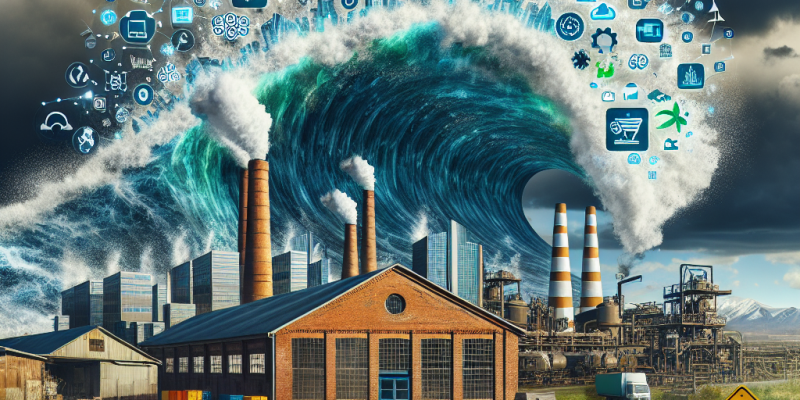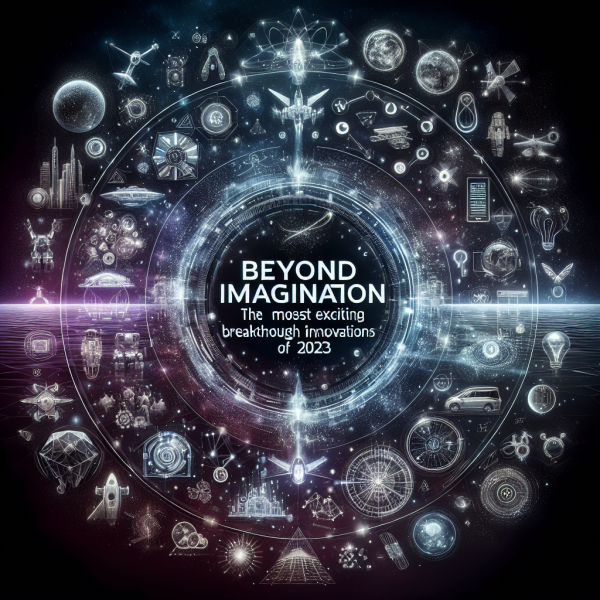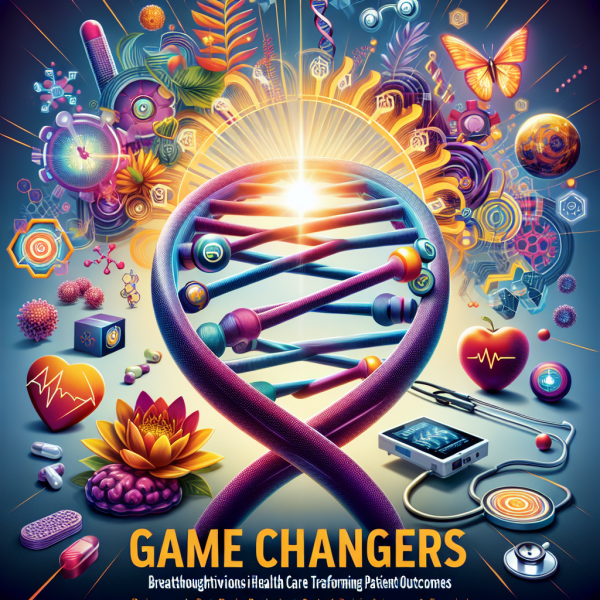Disruption Ahead: Understanding the Forces Shaping Today’s Industries

Disruption Ahead: Understanding the Forces Shaping Today’s Industries
In an era marked by rapid technological advancement and shifting consumer dynamics, industries across the globe are experiencing unprecedented disruption. From retail to health care, manufacturing to transportation, organizations face new challenges and opportunities as they navigate a landscape transformed by digital innovation, changing societal values, and global events. Understanding these forces is crucial for businesses aiming to thrive in this complex environment.
The Technological Revolution
At the heart of contemporary disruption is the technology revolution. Innovations in artificial intelligence (AI), big data, the Internet of Things (IoT), and blockchain are redefining how companies operate, engage with customers, and compete in the marketplace. For instance:
-
Artificial Intelligence: AI is facilitating everything from customer service automation through chatbots to predictive analytics that forecast consumer behavior. Retailers like Amazon leverage AI algorithms to provide personalized shopping experiences, significantly enhancing customer satisfaction and loyalty.
-
Big Data: Companies are aggregating massive amounts of data to glean insights into market trends, operational efficiency, and consumer preferences. In the healthcare industry, this data is harnessed to develop personalized medicine and improve patient outcomes.
- Blockchain: This technology is shifting paradigms by enhancing transparency and security in transactions. Industries like finance are finding new models of operation, where decentralized finance (DeFi) offers more accessible and inclusive financial services.
Shifting Consumer Expectations
Another significant force shaping today’s industries is the evolution of consumer expectations. The modern consumer is more informed, empowered, and environmentally conscious than ever before. Social media and online platforms provide a wealth of information, making it easier for consumers to research products, compare prices, and share experiences.
As a result, businesses must adapt by prioritizing:
-
Personalization: Customers now expect tailored experiences. Companies that harness data to create personalized marketing campaigns and product recommendations stand to build stronger relationships with their customers.
-
Sustainability: Increasingly, consumers are choosing brands that align with their values, particularly concerning environmental sustainability and ethical practices. Companies that fail to prioritize sustainable practices risk losing relevance as consumers flock to competitors that do.
- Convenience: The demand for convenience has never been higher. On-demand services and seamless digital experiences are no longer luxuries but necessities. Businesses that optimize their operations to enhance convenience—be it through e-commerce, delivery services, or user-friendly interfaces—are more likely to succeed.
Global Events and Supply Chain Challenges
The COVID-19 pandemic has brought to light the fragility of global supply chains and the critical importance of agility. Industries reliant on global logistics faced significant setbacks due to border closures, labor shortages, and increased demand for certain goods. As a result, businesses are re-evaluating their supply chain strategies, favoring flexibility and localization over traditional efficiency-driven models.
-
Agility and Resilience: Companies that embrace shorter supply chains and invest in technology for better tracking and forecasting are better positioned to respond to disruptions. For instance, many manufacturers are increasingly adopting just-in-time practices to minimize inventory costs while meeting fluctuating demand.
- Innovation in Logistics: The pandemic accelerated innovation within the logistics industry. Technologies like drones for delivery, autonomous vehicles for transport, and advanced warehousing solutions have emerged to meet the evolving challenges of supply chain management.
Regulatory Changes and Compliance
As industries evolve, so too do the regulatory frameworks that govern them. Regulatory bodies are adapting to the fast pace of technological change, addressing issues like data privacy, cybersecurity, and the ethical use of AI. Businesses must navigate this shifting landscape, balancing compliance with the need for innovation.
-
Data Protection Regulations: With stricter data protection regulations such as GDPR in Europe and CCPA in California, organizations must implement robust data governance policies to ensure compliance while continuing to derive value from data analytics.
- Environmental Legislation: Governments worldwide are enacting regulations aimed at mitigating climate change, compelling companies to adopt greener practices and report their environmental impact. Firms that proactively adopt sustainable policies not only comply with regulations but also position themselves as leaders in corporate responsibility.
Conclusion
As these diverse forces continue to shape industries, companies must remain vigilant and adaptable. Embracing technology, listening to consumer expectations, reevaluating supply chain strategies, and staying compliant with regulations are no longer optional but obligatory for success. The future belongs to those who are willing to innovate, take risks, and redefine their business models to navigate the disruptions ahead.
In this landscape of constant change, organizations that recognize and respond to these forces with agility and foresight will emerge as trailblazers, setting new standards for their industries while delivering value to their stakeholders in a continuously evolving world.














